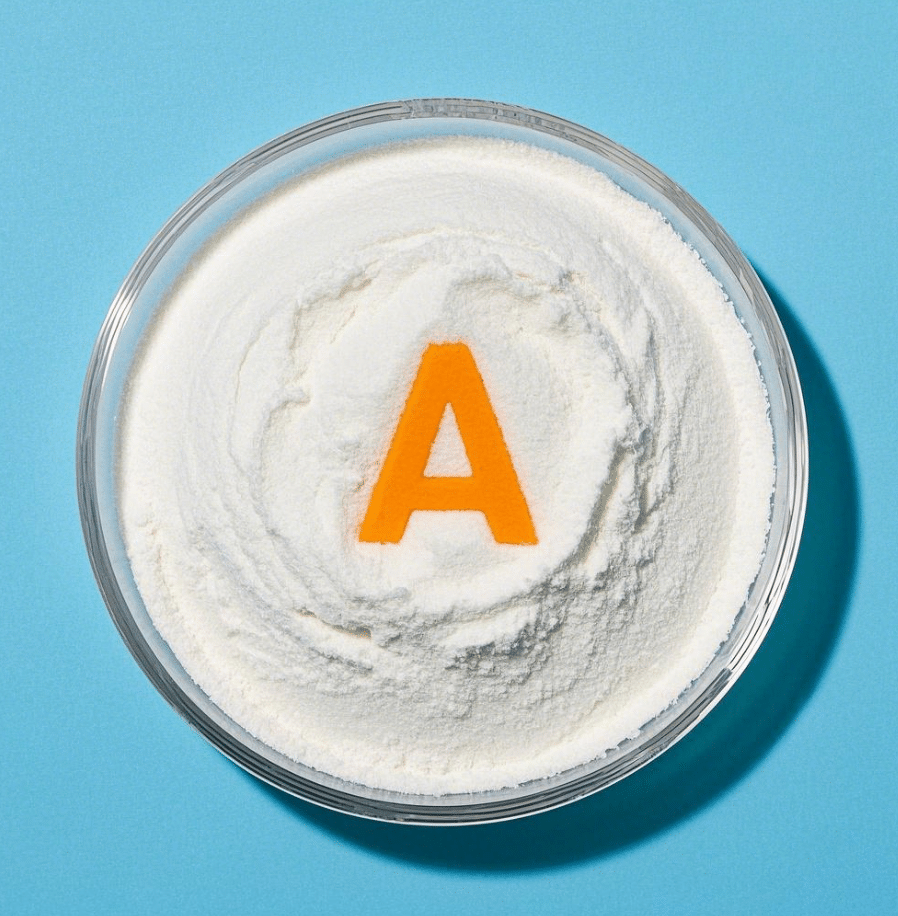
Vitamin A manufacturer
Vitamin A is a fat-soluble vitamin crucial for maintaining healthy vision, immune function, and cell growth. It plays a vital role in photoreception in the retina, ensuring good eyesight, particularly in low light. Beyond ocular health, Vitamin A supports skin integrity, reproductive processes, and acts as an antioxidant, protecting the body from oxidative stress.
Gensei offers high-quality Vitamin A powder, ideal for various applications. As a leading supplier, we specialize in vitamin a wholesale, providing a consistent and pure Vitamin A powder bulk. Our advanced manufacturing processes ensure that our Vitamin A meets stringent quality standards, making it a reliable choice for dietary supplements, fortified foods, and cosmetic formulations. Choose Gensei for your Vitamin A needs and benefit from our commitment to excellence and customer satisfaction.
Please note: We are a wholesale supplier and have minimum order quantities.
Have questions about this product? Our team is here to help. For inquiries about multiple ingredients, please use the Contact Us option and include the list of ingredients in your message.
- Vitamin A CAS No.: 79-81-2 (for Retinyl Palmitate)
- Chemical Name: Retinyl Palmitate
- Synonyms: Vitamin A Palmitate, Retinol Palmitate, Axerophtol Palmitate
- CB Number: While there isn’t a universal “CB Number” for all chemicals, for Retinyl Palmitate, related catalog numbers from suppliers might be used (e.g., specific item numbers from chemical suppliers). There isn’t a single standardized CB Number for Vitamin A that is widely recognized in the same way as a CAS number.
- Molecular Formula: C$_{36}$H$_{60}$O$_{2}$ (for Retinyl Palmitate)
- Molecular Weight: 524.86 g/mol (for Retinyl Palmitate)
- MDL Number: MFCD00001579 (for Retinyl Palmitate)
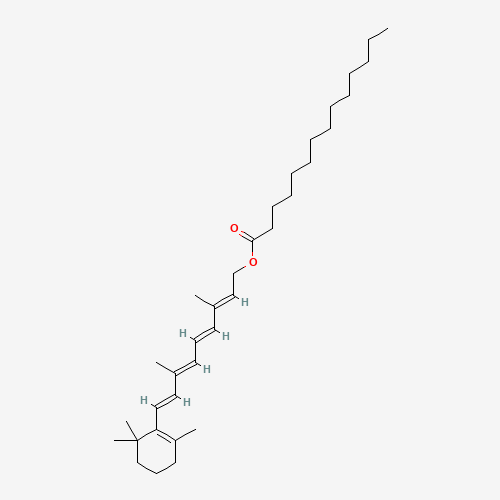
Vitamin A Manufacturing Process
Step 1: Raw Material Sourcing (Isoprenoid Precursors)
High-quality precursors such as Beta-Ionone are procured. These are typically derived from natural sources like lemongrass oil or through chemical synthesis.
Step 2: Multi-Step Chemical Synthesis
A complex series of organic reactions are performed, building the Vitamin A molecule from the isoprenoid precursors. This typically involves several condensation, reduction, and cyclization steps.
Step 3: Purification and Isolation
The crude Vitamin A intermediate is purified using techniques like crystallization, distillation, or chromatography to remove impurities and unwanted byproducts, yielding a purer form.
Step 4: Esterification (e.g., Retinyl Palmitate, Retinyl Acetate)
The purified Vitamin A alcohol (retinol) is reacted with a fatty acid (e.g., palmitic acid or acetic acid) to form a more stable ester form, such as Retinyl Palmitate or Retinyl Acetate.
Step 5: Micronization or Encapsulation (for powder forms)
For Vitamin A powder, the ester is often micronized (ground into fine particles) or encapsulated within a protective matrix (e.g., gelatin, starch) to improve stability, flowability, and dispersion.
Step 6: Quality Control and Testing
Extensive quality control tests are conducted, including assays for purity, potency, identification, heavy metals, and microbial contamination, ensuring product safety and efficacy.
Step 7: Packaging and Storage
The finished Vitamin A product is carefully packaged in light-protective and airtight containers. Specific storage conditions (e.g., cool, dry, dark place) are maintained to preserve its stability and shelf life.
Why Choose Gensei as Your Vitamin A supplier?
Gensei is your reliable source for premium Vitamin A, serving as a leading Vitamin A manufacturer with a focus on delivering high-grade Vitamin A powder. We are experts in vitamin a wholesale, providing a consistent supply of superior Vitamin A powder bulk to meet the demands of the supplement, food, and cosmetic industries. Our dedication to innovation and continuous improvement means you receive Vitamin A produced with cutting-edge technology and under strict quality guidelines. We understand the nuances of this vital nutrient and ensure our product offers excellent bioavailability and stability, making Gensei the smart choice for your long-term Vitamin A supply.
Vitamin A refers to a group of fat-soluble retinoids, including retinol, retinal, and retinoic acid. It is crucial for maintaining good vision, especially in low light conditions, as it is a key component of rhodopsin, a light-absorbing molecule in the retina. Beyond vision, Vitamin A plays a vital role in immune function, supporting the growth and differentiation of various immune cells. It also promotes healthy skin and mucous membranes, aids in bone growth, and is essential for reproductive health. It is a powerful antioxidant, protecting cells from damage.
Application Scenarios for Vitamin A:
- Dietary Supplements: Widely used in multivitamin supplements and standalone Vitamin A supplements to support vision, immune health, and overall well-being.
- Food Fortification: Added to staple foods like milk, cereals, and margarine to combat Vitamin A deficiency, particularly in developing regions.
- Cosmetics and Skincare: Retinoids (derivatives of Vitamin A like retinol and retinoic acid) are popular in anti-aging creams, acne treatments, and skin rejuvenation products due to their ability to promote cell turnover, reduce wrinkles, and improve skin tone.
- Pharmaceuticals: Used in certain ophthalmic preparations and dermatological treatments for specific conditions.
- Animal Nutrition: Included in animal feed to support the growth, reproduction, and immune health of livestock and poultry.
Our State-of-the-Art Manufacturing Facilities
Explore our modern facilities equipped with advanced technology to ensure the highest quality in the production of your vitamins, herbal extracts, minerals, and amino acids.

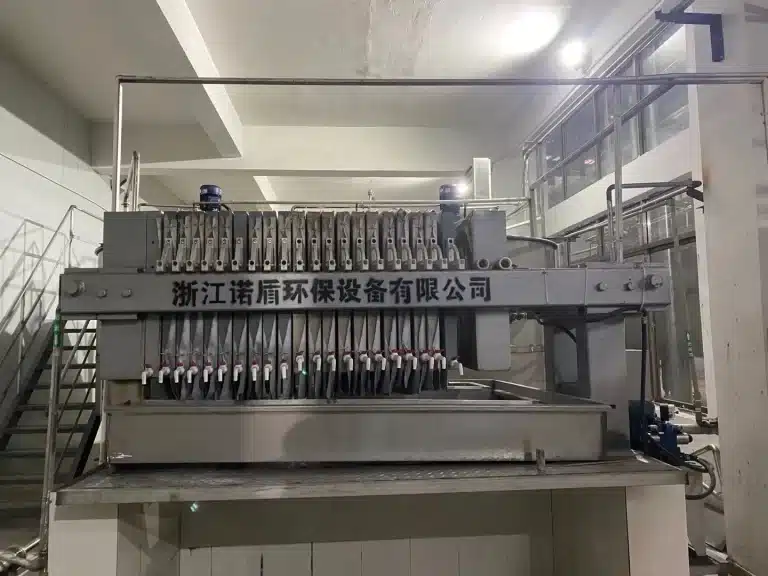
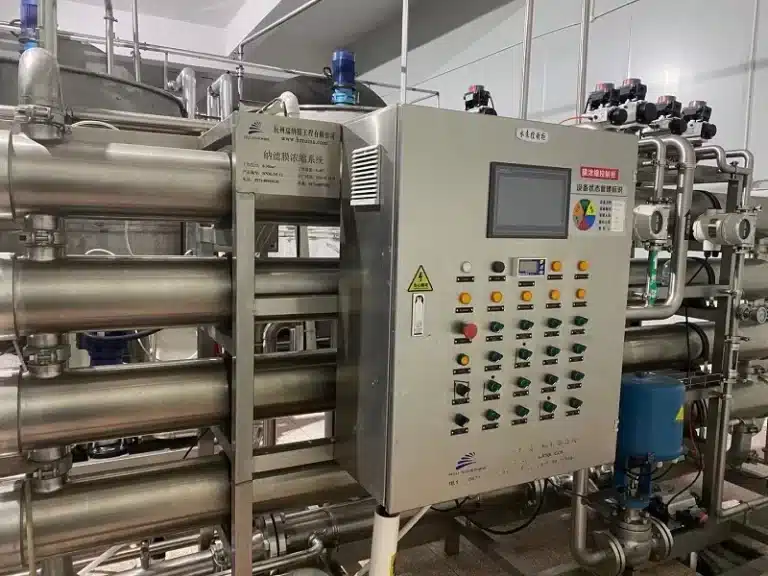
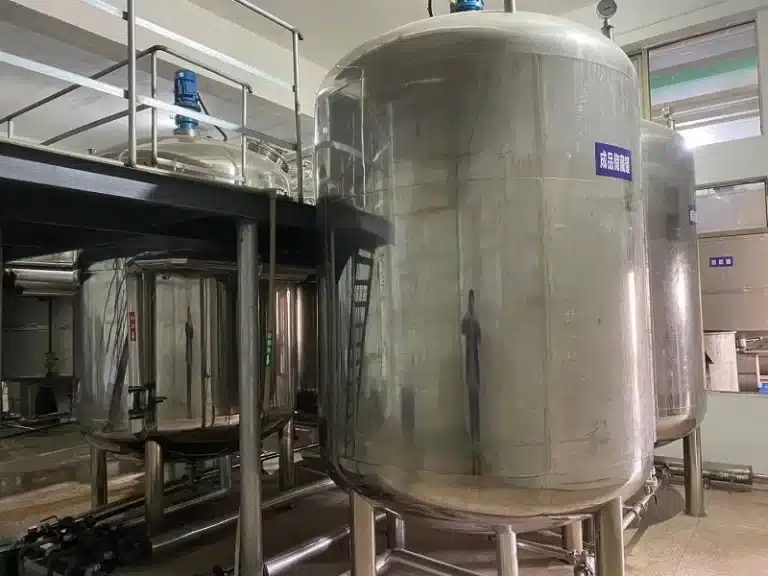
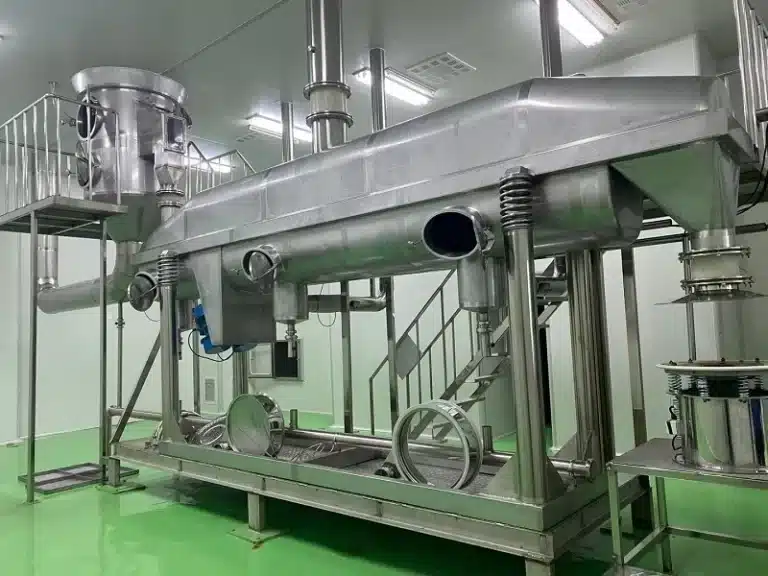






FAQs
Vitamin A is a fat-soluble vitamin crucial for numerous bodily functions. It's vital for maintaining healthy vision, especially in low light, supporting a robust immune system, promoting proper cell growth and differentiation, and maintaining healthy skin and mucous membranes.
Vitamin A exists in two main forms:
- Preformed Vitamin A (Retinoids): Found in animal products like meat, fish, poultry, and dairy. Common types include retinol, retinal, and retinoic acid.
- Provitamin A Carotenoids: Found in plant-based foods, most notably beta-carotene. The body converts these carotenoids into active Vitamin A.
Rich sources of preformed Vitamin A include beef liver, cod liver oil, eggs, and dairy products. Provitamin A carotenoids are abundant in colorful fruits and vegetables such as carrots, sweet potatoes, spinach, kale, mangoes, and cantaloupe.
Vitamin A deficiency can lead to several health issues, primarily affecting vision. Common symptoms include night blindness (difficulty seeing in low light), dry eyes (xerophthalmia), and in severe cases, irreversible corneal damage and blindness. It can also weaken the immune system, leading to more frequent infections, and cause dry, scaly skin.
Yes, excessive intake of preformed Vitamin A (usually from high-dose supplements, not from diet) can be harmful, as it is fat-soluble and stored in the body. Symptoms of Vitamin A toxicity can include headaches, nausea, dizziness, blurred vision, hair loss, dry skin, joint and bone pain, and in severe cases, liver damage or birth defects if taken in very high doses during pregnancy. Provitamin A carotenoids (from plant foods) generally do not cause toxicity.
The Recommended Dietary Allowance (RDA) for Vitamin A varies by age, gender, and life stage. For adult men, it's typically around 900 micrograms (mcg) RAE (Retinol Activity Equivalents) per day, and for adult women, it's about 700 mcg RAE per day. Needs increase slightly during pregnancy and breastfeeding.
Yes, Vitamin A and its derivatives (retinoids like retinol and retinoic acid) are widely used in skincare. They promote cell turnover, which helps improve skin texture, reduce fine lines and wrinkles, and treat acne. However, topical retinoids can make skin more sensitive to the sun.
Absolutely. Vitamin A plays a critical role in maintaining a healthy immune system. It supports the development and function of various immune cells, helping the body to fight off infections and regulate inflammatory responses.
Most people who eat a balanced diet rich in fruits, vegetables, and animal products can get enough Vitamin A from food sources. Supplements may be recommended for individuals with specific deficiencies or malabsorption issues, but it's crucial to consult a healthcare professional before taking high-dose Vitamin A supplements due to the risk of toxicity.
Yes, high doses of Vitamin A supplements can interact with certain medications. For example, some weight-loss drugs can decrease Vitamin A absorption, while certain medications for psoriasis or lymphoma that are Vitamin A derivatives can lead to dangerously high levels of Vitamin A if taken concurrently with supplements. Always discuss your supplement intake with your doctor.

